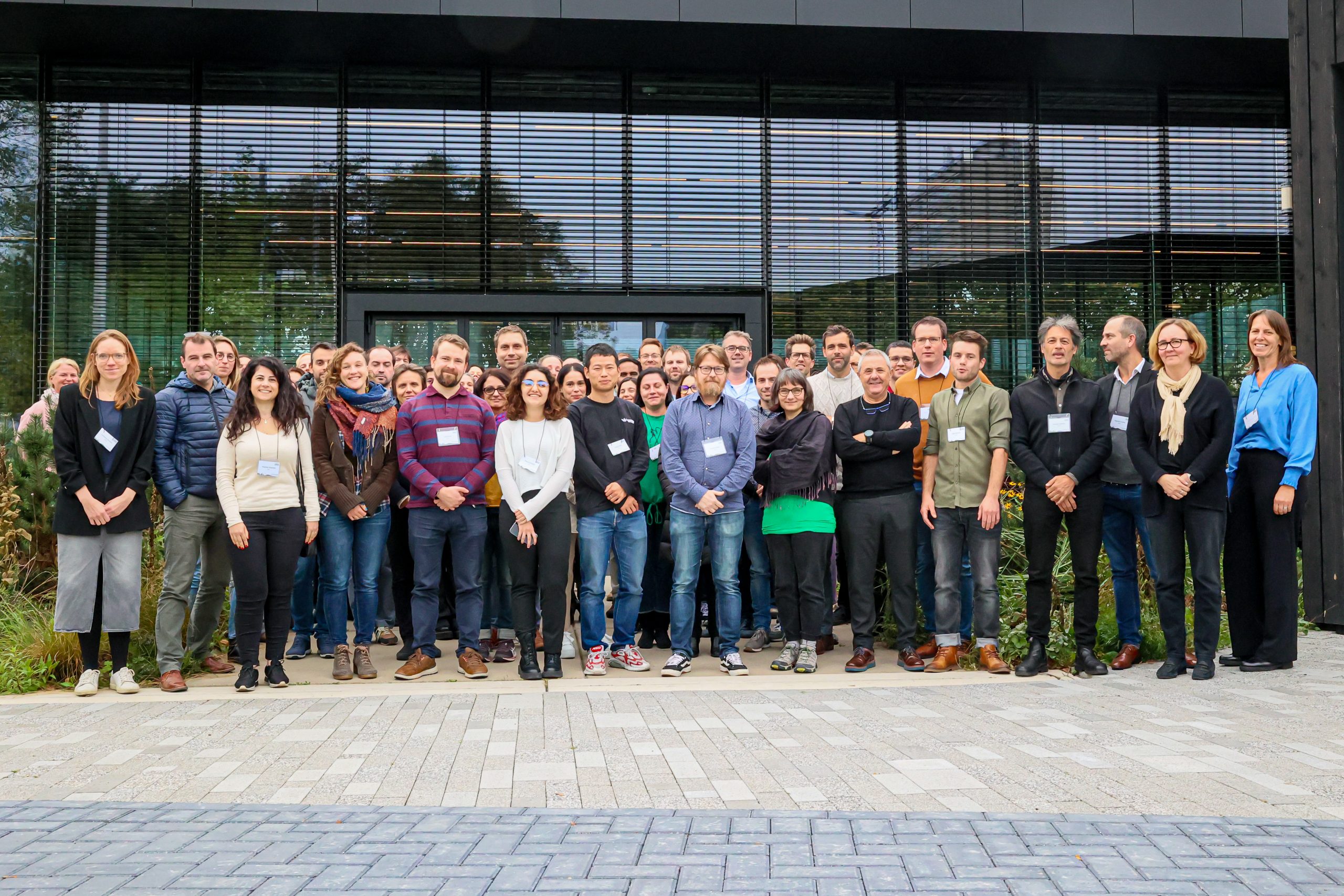
The RI-URBANS 2nd Science Meeting is held in Delft to discuss the progress of the project
- A total of 135 participants from 56 organisations attended the mid-term project meeting in both online and onsite formats
- Revision of the 1st reporting period, updates of the work packages, and the display of open data and service tools were some of the topics that were covered
The 2nd Science Meeting took part in Delft, the Netherlands, on October 18-19th 2023. A total of 63 attendees onsite and 76 attendees online from 56 institutions participated, including EMEP, WMO, WHO, ACTRIS, IAGOS, and ICOS.
As this event represented the mid-term project meeting, the following topics were addressed:

Left: Jan Peters, Martine Van Poppel, and Jelle Hofman (VITO). Right: Gaëlle Uzu (CNRS/IRD). | Robèrt Kroonen
“For this meeting, it was very important to involve air quality policy stakeholders in the interpretations and discussions of the project results, as well as pilots and applications of the Service Tools”, explains Xavier Querol, RI-URBANS coordinator and CSIC researcher.
Following the guidelines of the project evaluation process, it was agreed to make the open data and the description of the Service Tools more accessible. The description of these Service Tools is ready and will be reviewed by the WP leaders in the upcoming month.
“Some Service Tools are ready to be delivered. However, there are some others that will require further research to be harmonised, so it is very likely this will happen after the project lifetime. One of our goals now is to discuss how to do it”, explained Tuukka Petäjä, RI-URBANS coordinator and researcher at the Univesity of Helsinki.
A co-design process of the Service Tools between RI-URBANS and stakeholders will also be implemented to ensure the effective delivery of these tools to the end-users. Finally, the project’s progress will be displayed as a graphic roadmap on the website to make it more accessible.
In the discussion, it was also reaffirmed the need to intensify interactions with ICOS-Urban, IAGOS, and other Green Deal projects.

Left: Professor Roy Harrison (UB) and the RI-URBANS coordinator, Tuukka Petäjä (UHEL). Right: Wenche Aas (NILU). | Robèrt Kroonen
The summary of the meeting can be read in the corresponding Milestone 43 (M7.8):
